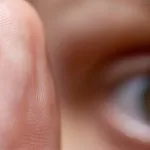
The Impact of Diabetes on Eye Health
Introduction
Diabetes is a chronic condition that affects millions of people worldwide. It is a metabolic disorder characterized by high blood sugar levels due to the body’s inability to produce or effectively use insulin. While the impact of diabetes on various organs and systems in the body is well-known, its effect on eye health is often underestimated. In this article, we will delve into the profound impact of diabetes on eye health and discuss the steps individuals can take to protect their vision.
The Impact of Diabetes on Eye Health
1. Diabetic Retinopathy: A Silent Threat to Vision
Diabetic retinopathy is a serious eye condition that affects the retina, the light-sensitive tissue at the back of the eye. It occurs when high blood sugar levels damage the blood vessels in the retina, leading to vision loss. Diabetic retinopathy often develops without noticeable symptoms in its early stages, making regular eye exams crucial for early detection and treatment.
2. Cataracts: Clouding the Vision
Cataracts are another common eye complication in individuals with diabetes. This condition involves the clouding of the eye’s natural lens, leading to blurred or cloudy vision. Diabetes can accelerate the development and progression of cataracts, potentially resulting in vision impairment.
3. Glaucoma: The Sneak Thief of Sight
Glaucoma is a group of eye diseases that damage the optic nerve, leading to vision loss and blindness if left untreated. People with diabetes are at an increased risk of developing glaucoma. The exact mechanisms linking diabetes and glaucoma are still being studied, but it is believed that changes in blood flow and nerve damage contribute to the development of this condition.
4. Diabetic Macular Edema: A Threat to Central Vision
Diabetic macular edema (DME) is a complication of diabetic retinopathy that specifically affects the macula, the central part of the retina responsible for sharp, detailed vision. DME occurs when fluid leaks into the macula, causing it to swell and distort vision. This condition can result in significant visual impairment and requires prompt medical intervention.
5. Retinal Detachment: Separation of Vision
Retinal detachment is a medical emergency that occurs when the retina pulls away from its normal position at the back of the eye. Diabetes increases the risk of retinal detachment due to the weakening and abnormal growth of blood vessels in the eye. Symptoms of retinal detachment include sudden flashes of light, floaters, and a curtain-like shadow over the visual field.
Frequently Asked Questions (FAQs)
Q: Can diabetes cause permanent vision loss?
A: Yes, if diabetes is not properly managed, it can lead to permanent vision loss. Regular eye examinations and strict blood sugar control are essential for preventing long-term complications.
Q: Are all people with diabetes at risk of developing eye problems?
A: While not everyone with diabetes will experience eye problems, it is crucial to remember that diabetes increases the risk significantly. Regular eye check-ups are recommended for all individuals with diabetes.
Q: How often should people with diabetes have their eyes examined?
A: It is generally recommended that people with diabetes undergo a comprehensive eye exam at least once a year. However, individuals with existing eye conditions or more advanced stages of diabetic retinopathy may require more frequent examinations.
Q: Can diabetic eye complications be treated?
A: Yes, early detection and proper management of diabetic eye complications can help prevent further vision loss. Treatments may include laser therapy, medications, or surgical interventions, depending on the specific condition.
Q: How can I protect my eyes if I have diabetes?
A: To protect your eyes, it is crucial to manage your diabetes effectively by maintaining a healthy lifestyle, controlling blood sugar levels, and attending regular eye exams. Additionally, quitting smoking and wearing sunglasses with UV protection can also contribute to eye health.
Q: Can diabetic eye complications be reversed?
A: While some diabetic eye complications can be managed and their progression slowed, the damage that has already occurred may be irreversible. This is why early detection and timely intervention are key to preserving vision.





